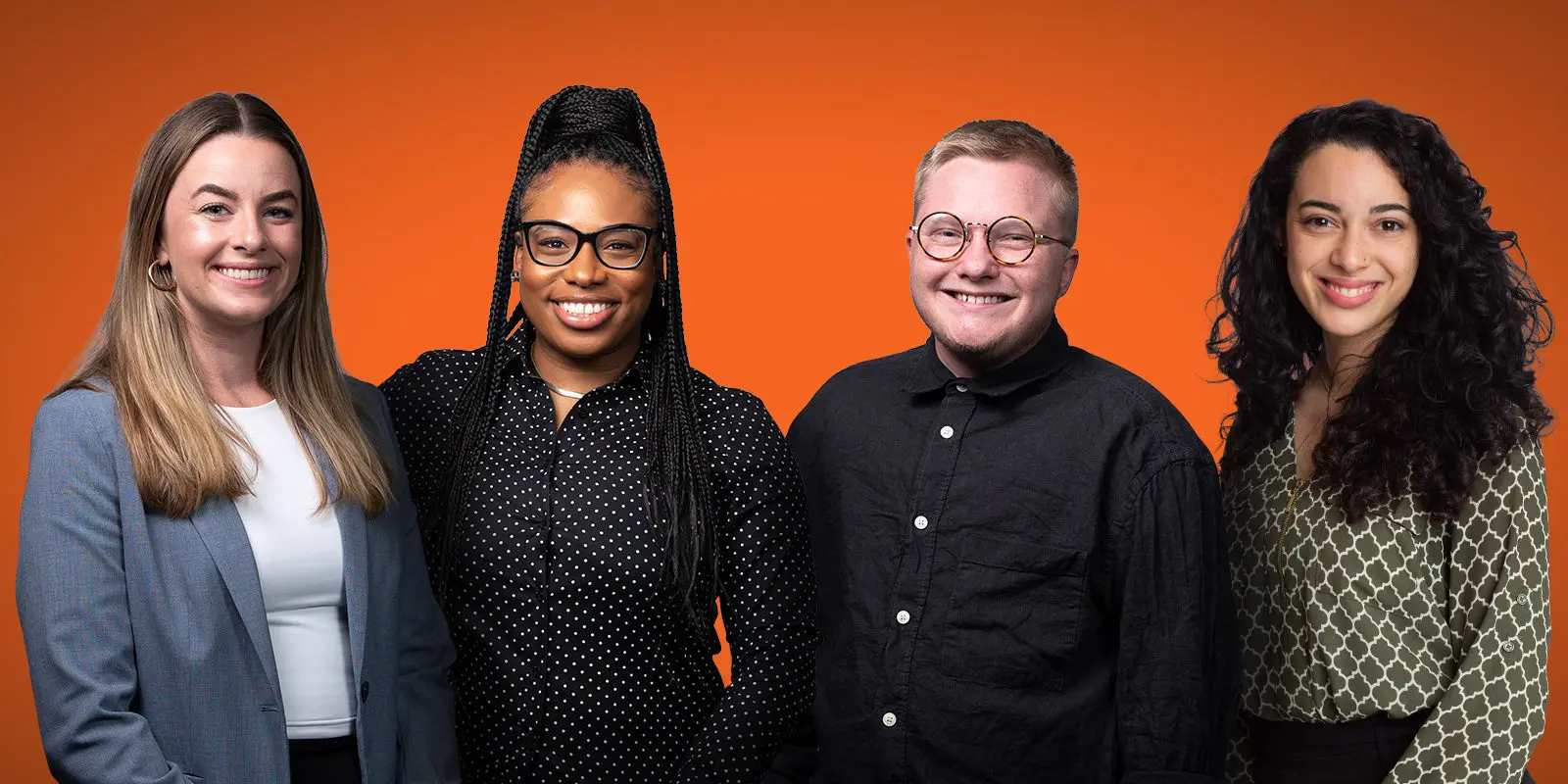[From left to right: Kate Somerville, Shlon Smith, Wes Wislar, and Destiny Printz Pereira]
When was the last time you explored a new place? Did you travel across the country, to another continent, or maybe to an unfamiliar part of your hometown?
The ability to travel, even across state lines, has always been a privilege. When COVID-19 paused in-person gatherings, many national conferences went on hiatus for years, interrupting annual events important for research networking. As we emerge from the shock to our social networks, the conference travel awards provided by Health Policy Research Scholars are more crucial than ever before. Scholars are eligible to apply for awards while in the program and in their first year as alumni.
Renewed purpose and confidence
“This was my first experience attending a conference in person, due to the ongoing pandemic,” said Wes Wislar, who studies sociology at Ohio State University and joined HPRS as part of the fifth cohort. Wes presented at the Population Association of America (PAA) conference in New Orleans in April, and praised the experience for several reasons. “I was reminded why I want to go into academia and felt reaffirmed in my research goals,” Wes said. “It was so energizing, grounding, and affirming to be there!”
Attending PAA not only provided Wes with valuable presentation experience, it also boosted their confidence and dedication. “Overall, attending PAA and presenting my research reminded me that I am capable and knowledgeable beyond what I give myself credit for,” Wes said. “I feel emboldened to continue this work even when it feels hard because I am reminded that I have a vast network of support behind me.”
Presenting at conferences also offers scholars an opportunity to deepen their connection to the work they are doing. Kate Somerville, a fourth cohort University of Colorado Boulder student studying educational foundations, said, “Sharing my work—which is informed by a culture of health framing—helps me understand why my work is unique and how to continue thinking deeply about how education can be informed by public health, and vice versa.”
Collaboration and cross-pollination
In addition to traveling to new places and gaining valuable experience, scholars who attend conferences get the opportunity to nurture relationships among like minds, across fields of study. Kate said attending the American Educational Research Association (AERA) conference in Chicago, one of the largest conferences in the field of education, was an invaluable networking opportunity.
University of Connecticut alum Destiny Printz Pereira, a member of the third cohort, said that attending the Society for Research in Child Development (SRCD) conference in Salt Lake City helped her to learn about other fields of study and find potential collaborators for future projects.
“Attending SRCD helped me view my area of research and advocacy in a different light and allowed me to have a broader systemic view of solutions,” said Destiny, who studies clinical psychology. “It was also an opportunity for me to meet with people outside of my field who are working towards the same goals, to understand their perspective based on their unique training.”
Rethinking what is possible
University of Georgia student Shlon Smith, of the fourth cohort, also attended the SRCD conference in March. As a school psychologist, she felt it was important to attend given SRCD’s focus on understanding child development at every stage, from perinatal to young adulthood.
The experience gave Shlon an opportunity to rethink what is possible. “Prior to the conference, I envisioned my career primarily as a clinician working directly with children and families, and as an advocate for effective and comprehensive school mental health policies and practices,” Shlon said. “The conference sparked an interest in truly understanding the research-to-policy and practice pipeline, which I initially shied away from.”
Shlon also expressed gratitude: “I would just like to thank the HPRS NPC team and RWJF for sponsoring me to attend this conference, as it would not have been possible without them. I acquired an extensive amount of knowledge. … Attending the conference also created the space for me to question how research is conducted, the value placed on the voices we acquire information from, and what we do with that information.”

